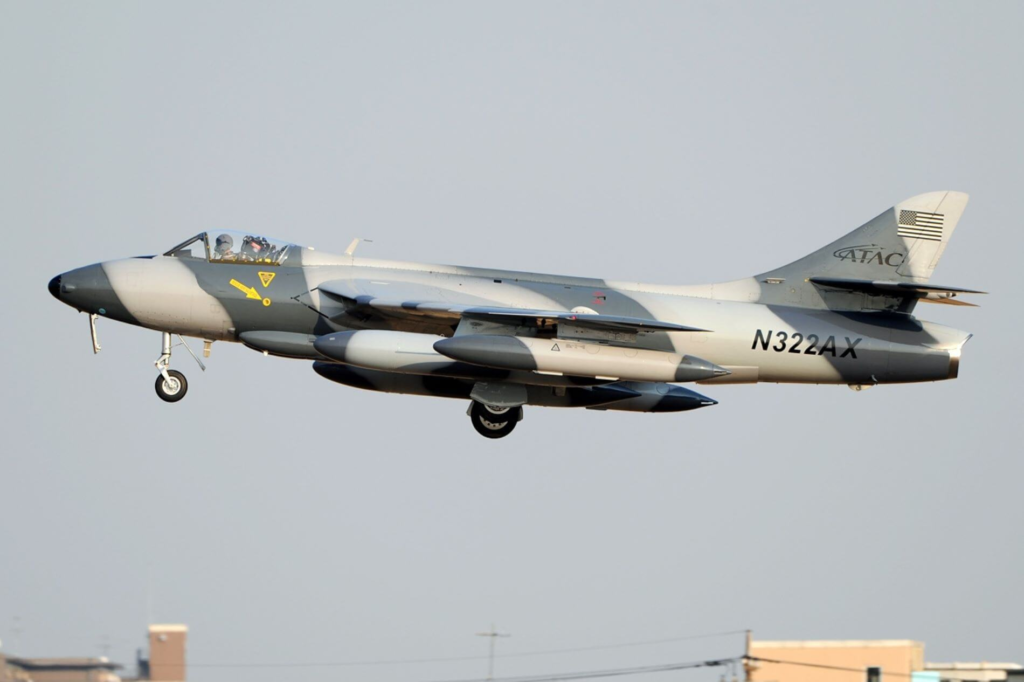A vintage Hawker Hunter jet operated by Airborne Tactical Advantage Company (ATAC) crashed into the Pacific Ocean near Big Sur, California, on October 15, 2025. The pilot is presumed to have ejected before impact and a US Navy helicopter crew pulled him from the water. He suffered serious spinal injuries and doctors at Stanford Medical Center are treating him, according to local news reports.
The jet, callsign ATAC 12, flew in formation with another Hunter, ATAC 11, when something went wrong shortly after 11 a.m. local time. The second pilot circled the crash site, squawked the emergency code 7700 to air traffic control, and helped guide rescuers to the scene.
ATAC helps with training of US military pilots by flying as the enemy in mock air battles. The company uses real jets to simulate threats that American forces might face in combat. The pilots are civilians, but most are former military aviators with experience in high-performance fighters.
Jeffrey Parker and Larry Payne founded ATAC in 1994 in Newport News, Virginia. The company started small, flying a few retired British and Swiss fighters. It now operates more than 90 aircraft and supports the Navy, Marine Corps, and Air Force. Textron, the parent company of Cessna, Beechcraft, and Bell, bought ATAC in 2016 and folded it into its defense-training division.
ATAC’s fleet includes a mix of aging but capable jets. The Hawker Hunter, built in the 1950s, still flies well after decades of upgrades. The company also operates French Mirage F1s, Israeli Kfirs, Douglas A-4 Skyhawks, and Czech L-39 Albatros trainers. These aircraft take off from several US bases to act as mock opponents, radar targets, or strike aircraft in live training.
Investigators have not yet said why ATAC 12 went down. The company’s jets often fly demanding missions at low altitude and high speed, which leaves little room for error. Mechanical failure remains a possibility.
ATAC has lost several aircraft over the years. A Hunter crashed off Hawaii in 2018 after an engine problem. The pilot survived but suffered severe spinal injuries during ejection. Another Hunter went down in the Atlantic off North Carolina in 2022. The pilot ejected safely. The Aviation Safety Network lists nine ATAC Hunter losses since the 1990s.
Despite those incidents, the Pentagon continues to rely heavily on ATAC and other private firms for training. The Navy and Air Force use contractors to save money and extend the life of their front-line fighters. ATAC and its competitors now handle thousands of sorties each year that once were flown by military squadrons.
The crash near Big Sur underscores the risks that come with flying older jets in aggressive training roles. ATAC’s pilots fly hard, often at the limits of the aircraft’s design, to give US crews realistic combat practice. Those flights demand skill, discipline, and constant attention to safety. For now, investigators will be trying to piece together what went wrong.


